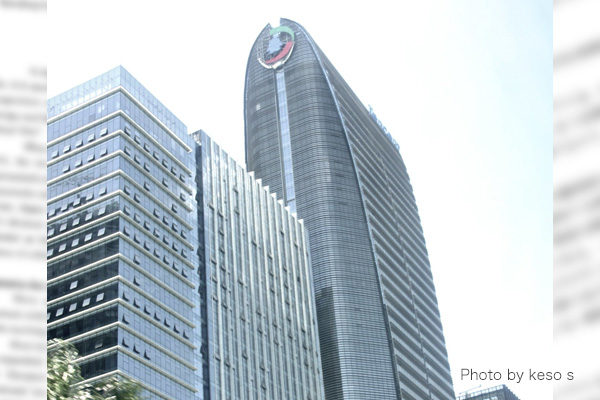In the March 18 Speaking Out (#774) column, I pointed out concerns over investment in Rakuten Inc. by Japan Post Holdings Co. and a subsidiary of Chinese information technology giant Tencent Holdings Ltd. Here, I would like to discuss more about the Tencent investment problem that is related to economic security.
First, there is insecurity regarding regulations under Japan’s Foreign Exchange and Foreign Trade Act.
In the autumn of 2019, Japan amended the act in line with European and U.S. actions to toughen investment regulations. Surprisingly, however, Tencent has not been required to notify its investment in Rakuten to Japanese authorities in advance even under the amended act because Tencent is not state-owned but a private company. Even though the Chinese government has been enhancing its control on Tencent, the company is rigidly treated as private.
There is an opinion that no problem exists with the investment conditioned on Tencent’s promise not to access personal information held by Rakuten. The opinion looks reasonable but does nothing but makes us feel better. Unlike the U.S., Japan has little intelligence capabilities. Can the Japanese government check if the condition is met?
Rakuten’s U.S. operations could be affected
Second, the U.S. casts a stern eye on the Tencent investment in Rakuten. In fact, the deal could be subject to U.S. regulations.
Rakuten is doing business in the U.S. so that investment in the company can be subject to regulations by the Committee on Foreign Investment in the United States (CFIUS). If the CFIUS finds any problem with the Tencent investment in Rakuten, the U.S. president could nullify the deal.
In 2018, for instance, the CFIUS disapproved major Japanese building material producer LIXIL Corp.’s plan to sell a subsidiary in Italy to a Chinese company as the Italian subsidiary was doing business in the U.S. Given U.S. concerns over Tencent, the Tencent-Rakuten deal may be far more significant in terms of economic security than the LIXIL plan.
Rakuten has been rapidly expanding its U.S. operations. In 2019, it formed an equity and business partnership with a U.S. company related to the fifth-generation mobile communications standard. Under the Trump administration, Rakuten was allowed to take part in the Clean Network Initiative of reliable communications companies. It has also joined a new U.S.-led industry group for 5G services. How will the U.S. view Rakuten that has formed an equity partnership with Tencent while participating in such U.S.-led frameworks? Depending on the partnership’s details to be unveiled before long, Rakuten’s U.S. operations could be affected.
Rakuten-Tencent deal to test Japan’s attitude on China
The U.S. government is watching not only Rakuten but the Japanese government how it would react to the Tencent deal.
Some in Washington suspect Japan’s Suga administration might be conciliatory to China. Ahead of the first in-person meeting between Japanese Prime Minister Yoshihide Suga and U.S. President Joe Biden in April, Tokyo should eliminate Washington’s concerns by addressing appropriately the Rakuten problem.
Masahiko Hosokawa is a professor at Meisei University and a former director-general of the Trade Control Department at Japan’s Ministry of Economy, Trade and Industry. He is also a Planning Committee member at the Japan Institute for National Fundamentals.


